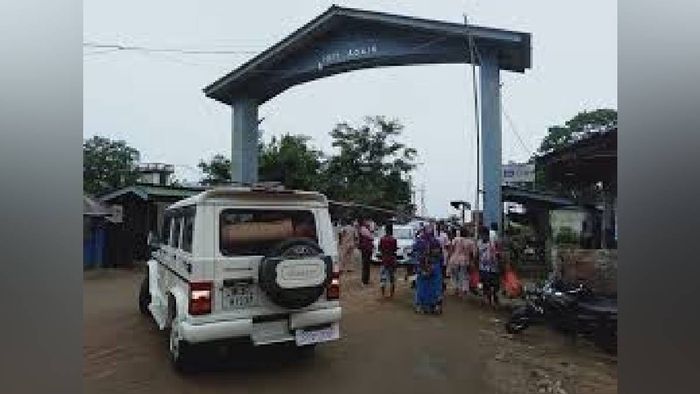NSF establishes Inner Line Regulation Commission, submits reform-driven memorandum to Nagaland government
In an initiative aimed at reinforcing the Inner Line Permit (ILP) system in Nagaland, the Naga Students’ Federation (NSF) has announced the constitution of the Inner Line Regulation Commission (ILRC). The formation of this commission follows a resolution adopted during the NSF’s 4th Federal Assembly held on December 4, 2024.

- Apr 10, 2025,
- Updated Apr 10, 2025, 7:07 PM IST
In an initiative aimed at reinforcing the Inner Line Permit (ILP) system in Nagaland, the Naga Students’ Federation (NSF) has announced the constitution of the Inner Line Regulation Commission (ILRC). The formation of this commission follows a resolution adopted during the NSF’s 4th Federal Assembly held on December 4, 2024.
Speaking to the media, NSF President Medovi Rhi confirmed the creation of the ILRC, which comprises a five-member team led by former NSF President (1999–2001), Senchumo NSN Lotha, who will serve as Chairman for a three-year term. The commission has been mandated to review existing ILP mechanisms and propose reforms aimed at tightening enforcement and improving administrative effectiveness.
Marking its first official action, the ILRC submitted a comprehensive 10-point memorandum to the Chief Secretary of Nagaland earlier today. At a press briefing, Chairman NSN Lotha underscored the Federation’s long-standing engagement with ILP-related issues, dating back to the late 1970s. He criticized the government’s inconsistent enforcement of the Bengal Eastern Frontier Regulation (BEFR), 1873, which provides the legal basis for the ILP.
“Due to decades of lax enforcement, the ILP has become porous and, at times, counterproductive,” Lotha said. Drawing comparisons with Mizoram, he praised its structured ILP implementation and highlighted the shortcomings in Nagaland’s approach.
Among the key recommendations in the memorandum are:
Establishment of a centralized digital ILP database for permit tracking and regulation.
Setting up of dedicated ILP offices and check gates in strategic locations, especially Dimapur.
Formation of a specialized ILP enforcement wing trained in BEFR protocols.
Introduction of transparent financial systems, including digital payments via UPI for all ILP-related fees and penalties.
Lotha noted that current enforcement mechanisms are ill-equipped, with police personnel often lacking clarity on exemptions and regulations under the ILP system. This, he said, leads to unauthorized and unchecked entry into the state.
The proposed reforms are designed to ensure both strict adherence to the ILP and modernization of the system in line with evolving administrative standards. “Our objective is not just enforcement, but also to create a system that is accountable, efficient, and responsive,” Lotha added.
Reaffirming the NSF’s commitment, he said, “The economy of Nagaland must be protected by its own people. Through this memorandum, the ILRC takes its first step toward ensuring that goal is met.”